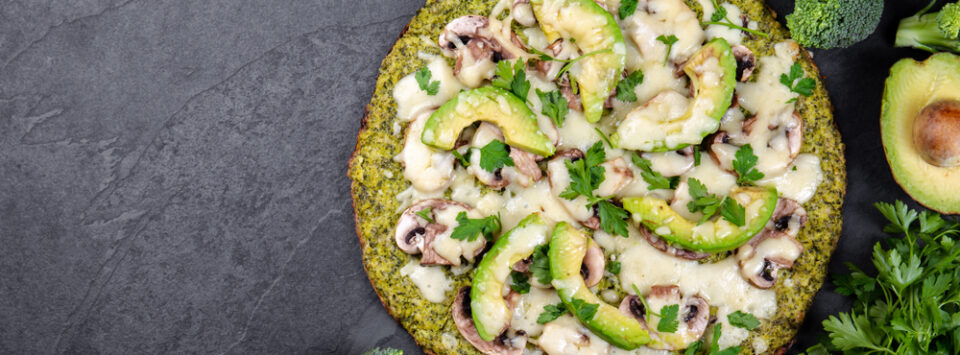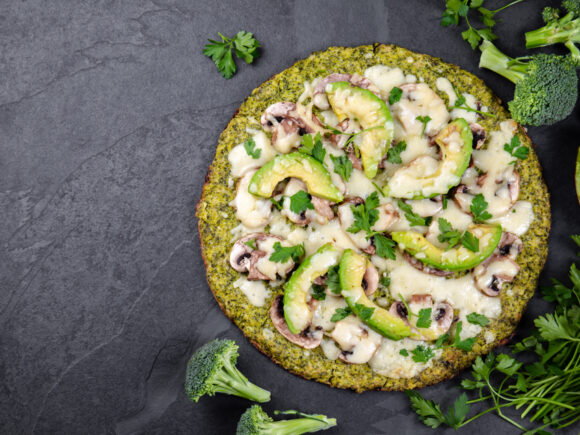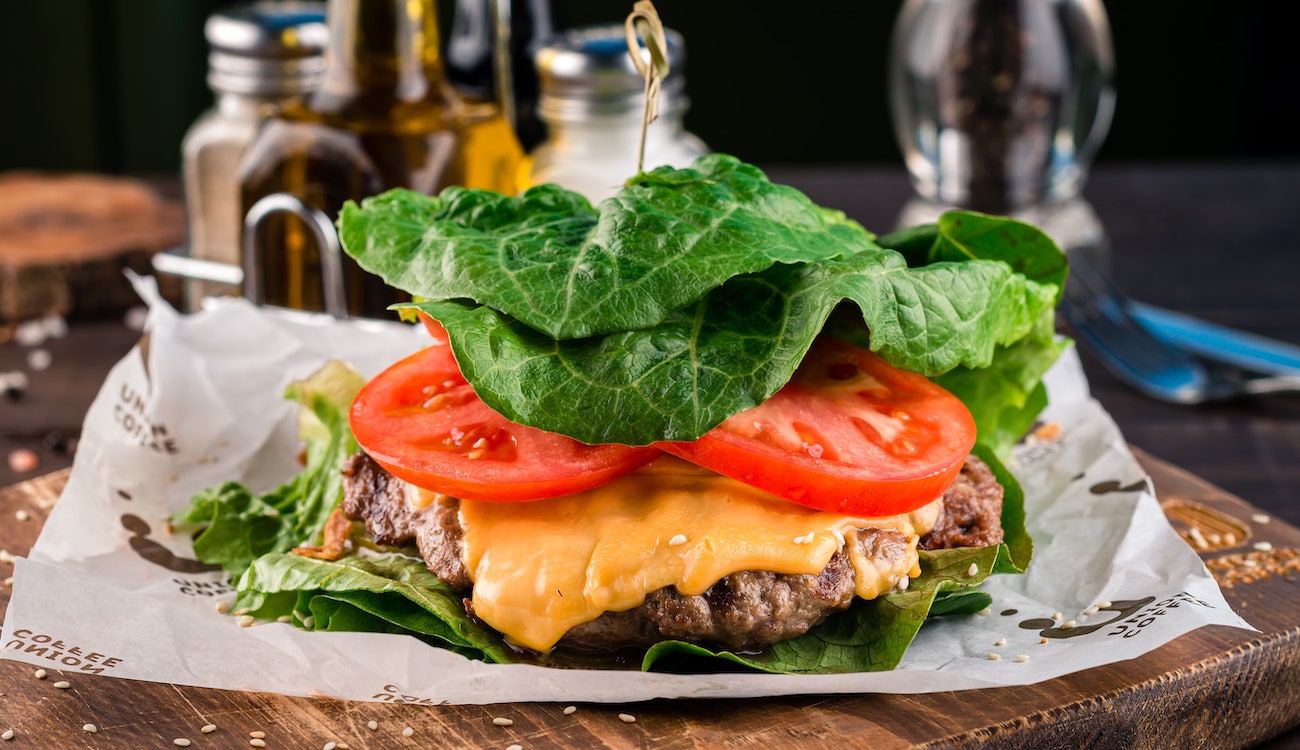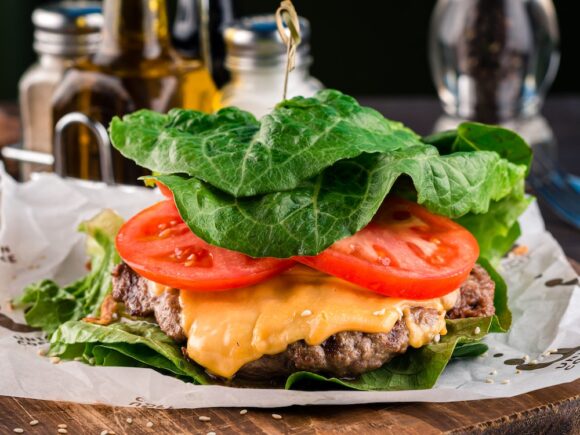The Complete Vegan Keto Diet Guide


Now before we unravel the contents and benefits of the vegan keto diet, let’s have a look at the basics first:
Vegan Diet
This is a high-carb, low-fat diet that converts carbohydrates into glucose as fuel for our body. It is strictly practiced by those who are generally animal lovers and quiver at either the sight or even the mere thought of slaughterhouses or any other manner of animal cruelty. This diet does not only exclude one from consuming animal products but also eggs, dairy, and other products sourced from animals.
Benefits of Vegan Diet
The vegan diet is largely revered for its numerous health benefits such as:
- Loss of excess weight
- Rich in nutrients such as folate, potassium, magnesium, folate, and vitamins A, C and E
- Lower blood sugar levels
- Improve kidney function
- Prevents certain cancers such as breast, colon and prostate cancer
- Lowers the risk of heart disease
- Reduce arthritis pain
- Prevent and reverse diabetes
Ketogenic Diet
The keto diet is a high-fiber, moderate protein and low-carb diet that forces the body to go into a metabolic state called ketosis to burn and convert fat into ketones for energy consumption instead of carbohydrates. It has been practiced for more than half a century which started out as medicine for treating epilepsy in children but has gained significance as a popular diet method.
Benefits of Keto Diet
Like vegan diet, keto diet primarily aids in weight loss, but it also has several other health advantages including:
- Makes you less hungry
- Lowers the risk of Type-2 diabetes
- Reduces blood pressure
- Most effective treatment against metabolic syndrome
- Treats several brain disorders, possibly also Parkinson’s and Alzheimer’s
So now let’s take a look at what the vegan keto diet is.
What is Vegan Ketogenic Diet?
Now when you take both of these diets into consideration, there is nothing similar between them. One is high in carb (vegan) and the other high in fat (keto). The only things they share in common are health benefits like losing weight and preventing a number of diseases and conditions.
But, can you actually be a vegan who follows a high-fat diet program? The answer is certainly yes. It turns out that animals or animal-related food products aren’t the only sources of fat. Plant-based products such as avocados, coconut oil, seeds, and nuts are also high in fat as well.
However, in order for a vegan (who usually follows a high-carb diet) to activate ketosis, the carbs have to reduced to 50 grams a day and the fat intake has to be around 75%.
If we were to give a brief description of the vegan ketogenic diet, it would be; a high-fat, moderate protein, low-carb diet that excludes any animal-based products.
Vegan keto is just one of several variations of the ketogenic diet. Another example is pescatarian keto, which eliminates meat but still permits consumption of eggs, dairy, and seafood. Additionally, there’s the option of dirty keto, a less restrictive variation where no specific food groups are excluded, as long as daily carbohydrate intake remains under 50g.
So it is possible for those who follow a vegan diet to initiate ketosis, however, it takes immense practice to get it right. But the benefits are certainly worth it in the end.
Vegan Keto Diet Benefits
Most of the world is wary of the kind of benefits that await those who practice either a vegetarian diet or a ketogenic one. However, there haven’t been many scientific studies on the benefits of a vegan keto diet program.
Still, given the benefits listed for both vegan and keto diets, it is possible to acquire similar benefits when following a vegan keto diet. Some of the common health benefits associated with a vegan diet include:
#1 – Reduces Appetite
Normally, people following the vegan diet experience severe hunger pangs because of eating too many carbohydrates every day. High-carb products create rapid changes in our blood sugar that instigate extreme hunger urges and lead to the development of overeating habits.
But consuming high-fat food products helps alleviate that problem and that’s what makes the ketogenic diet an ideal weight loss solution. This is because ketosis optimally balances your blood sugar levels as well lower your hunger pangs naturally. Another reason is that protein-based products help you feel sated or feeling full longer.
The vegan side of this diet is also beneficial because it provides you with a higher quantity of fiber, which helps you feel full for longer durations. Because of this, your metabolic rate will also increase, giving your body an array of benefits.
#2 – Accelerates Your Ability To Burn Fat
Since the vegans undergo ketosis, it is obvious that they’re going to burn more fat than glucose for energy. Add that to the fact that you feel less hungry with this diet, it only furthers your chances of losing excess weight in the process.
Also, the vegan aspect of this diet is a huge plus because plant-based products are rich in healthier fats such as omega-3 fatty acids. These fats provide a variety of health benefits like lowering the risk of heart disease and help you digest quicker. As a result, you will be able to burn fat faster than you would with a normal ketogenic diet.
#3 – Increases Your Metabolic Rate
A high-quality vegan keto diet is essential in boosting your body’s rate of metabolism. And since protein-based products consist of high-fiber content, it helps you feel fuller for a longer time as well as boost your metabolic rate. The reason behind this is because the structure of protein-based products are larger than those of carbohydrates and that’s why it takes longer to digest, thus lowering your hunger pangs.
Also, eating high-fiber fruits and vegetables will increase your metabolism to higher rates, helping you digest and lose weight more efficiently.
#4 – Helps Improve Your Cognitive Functions
The fat that your body burns as a source of energy by following the vegan keto diet lasts longer than the glucose processed from high-carb foods. This prevents any chances of you getting severe sugar crashes and prevent your brain’s cognitive function from decreasing as well.
Consequently, you will be able to focus more for a longer time and won’t experience any sugar spikes from large quantities of carbohydrates. Besides, if your body takes in too many carbohydrates, you will likely experience “food coma” and have trouble digesting all that glucose. Protein and fat, on the other hand, do not have such effects and will allow your brain to function more efficiently.
Other advantages of the ketogenic diet are the neuroprotective qualities that have convinced researchers of their treatment of numerous neurodegenerative disorders like Parkinson’s, Alzheimer’s, headaches and sleep disorders.
#5 – Lowers The Risk Of Diabetes
Consuming high-carb products produces a sudden surge in our glucose levels, which could decrease our body’s insulin resistance, ultimately leading to obesity and type-2 diabetes.
Since the vegan keto diet is high in fat content and low in carbs, the aforementioned problems are immensely reduced. Our blood sugar levels do not spike and the insulin levels are normalized. It is even possible for type-2 diabetics to reduce or discontinue their diabetic medication upon adopting the vegan keto diet plan.
#6 – Decreases The Symptoms of Epilepsy
The ketogenic diet has been a viable treatment for managing severe cases of epilepsy since the 20s, that is still being used today. The condition is said to escalate due to feelings of hunger or starvation. And because ketosis makes us feel less hungry, the symptoms of this condition are lessened as a result.
The vegan aspect of the vegan keto diet also helps in boosting the mental state and focus of epileptic patients. These benefits are especially helpful for those who experience traumatic effects from the condition.
Foods You Should Eat
When following a vegan keto diet, it is important to ensure that the foods you eat are high in fat, adequate in protein and low in carbohydrates. Above all, the foods have to be non-animal-based and healthy.
Here are the products you should eat while following a vegan keto diet:
- Oils: medium-chain triglyceride (MCT) oil, olive oil, avocado oil, coconut oil, and nut oil.
- Low-carb vegetables: spinach, leafy greens, endive, lettuce, celery, tomatoes, radishes, broccoli, cucumber, zucchini, cabbage, etc.
- Meat substitutes: soy burgers, seitan, meatless sausages and bacon, tofu dogs or vegetable dogs, fish or chicken substitutes.
- Adequate protein sources: vegetable protein powder, tempeh, tofu, and soy protein powder.
- Sea vegetables: kelp, bladderwrack, dulse, etc.
- Nuts and seeds: almonds, pistachios, sunflower seeds, pumpkin seeds, chia seeds, hemp seeds, macadamia nuts, etc.
- High-fat “dairy”: vegan butter, unsweetened coconut yogurt, vegan cheeses, coconut cream, cashew cheese, etc.
- Mushrooms: lion’s mane, king oyster, shiitake, etc.
- Berries: raspberries, blackberries, blueberries and strawberries in moderate condition.
- Avocados: guacamole and whole avocados.
- Fermented foods: kimchi, sauerkraut, natto, etc.
- Condiments: fresh herbs, nutritional yeast, salt, lemon juice, spices, and pepper.
Check out our 20 vegan keto dinner ideas as well as 15 vegan keto breakfast recipes.
Foods You Should Avoid
Other than eating meat, you must refrain from eating any food that is high in carbohydrates and if you have any such item in your fridge, replace it with good fats and vegan-based proteins.
The foods that you must avoid eating while following the vegan keto diet include:
- Fruit: apples, oranges, bananas, and other fruits should be limited or avoided entirely, except for berries.
- Starchy vegetables: sweet potatoes, beets, winter squash, potatoes, and peas.
- Beans and legumes: chickpeas, black beans, and kidney beans.
- Sugar: agave, maple syrup, honey, white sugar, and brown sugar.
- Dairy: yogurt, milk, butter, cheese.
- Grains and starches: corn, rice, wheat, bread, cereal, pasta, and baked goods.
- Seafood: fish, mussels, clams, and shrimp.
- High-carb alcoholic beverages: wine, sweetened cocktails, and beer.
- High-carb condiments and sauces: sweetened salad dressings, marinades, and barbeque sauce.
- Sugary beverages: juice, smoothies, sweet tea, soda, chocolate milk, and sports drinks.
- Highly-processed foods: Reduce or stop processed foods and increase whole, unprocessed food.
Conclusion
The vegan ketogenic diet involves eating low-carb, high-fat plant-based food products that exclude animal or animal-based and high-carb products.
A combination of both vegetarian and ketogenic diet brings similar health benefits such as weight loss and reduced risk for diabetes and other diseases.
Even though more sufficient scientific research needs to be conducted, there is no denying the positive advantages that the vegan keto diet presents to those to practice it.







